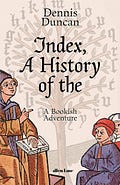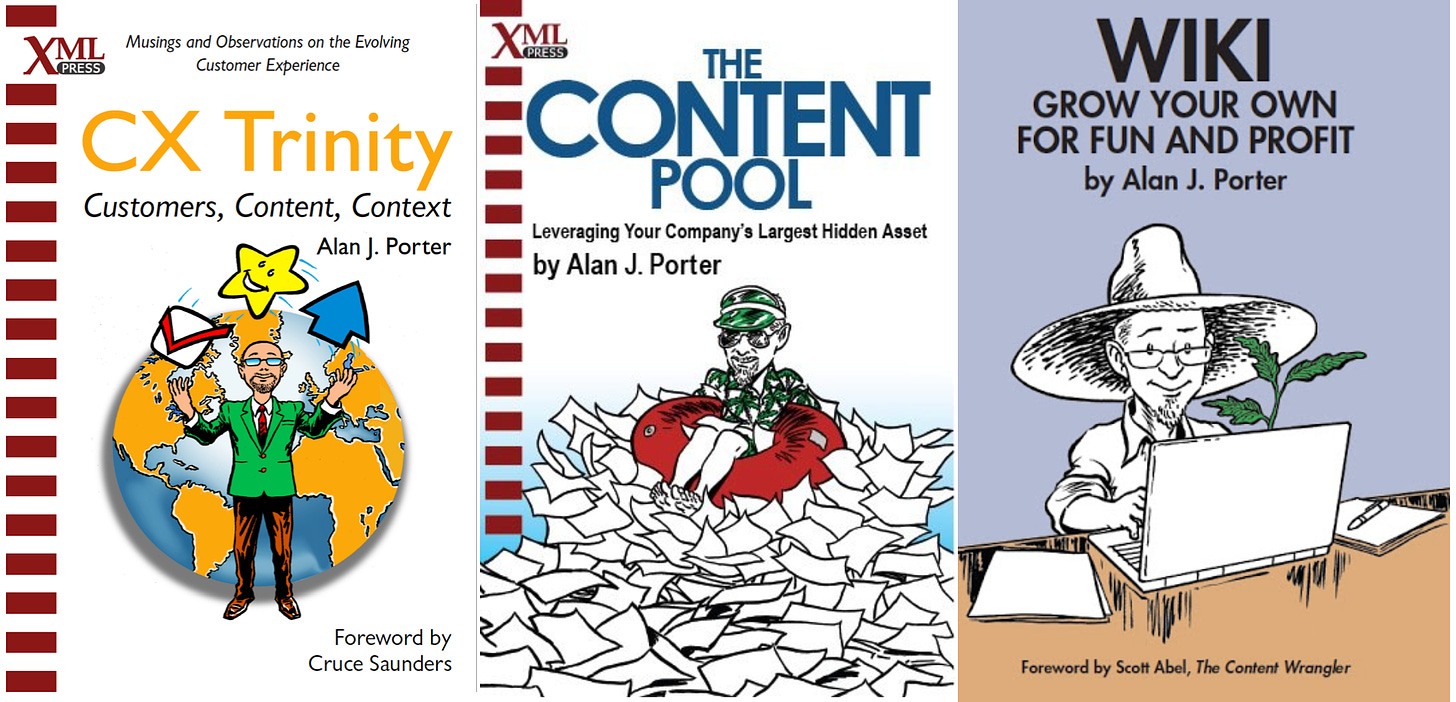I’ve been thinking a lot about indexes recently. I am in the final stages of preparing the manuscript of my latest non-fiction book to hand off to the publishers. The last task is working through the text to identify the terms I want included in the index. It’s a slow process that involves looking at your text from a different perspective, instead of thinking in terms of the narrative flow, you have to put your mind in the headspace of someone who may be looking for particular snippets of information within your text.
As a researcher, I’ve always appreciated a good index. They can not only point you to answers to questions, but they can also reveal new ideas and interpretations about the text.
Yet I’ve have noticed an increasing number of non-fiction books that exclude them.
In this age of search engines and AI are they still necessary? Is the way that people look up information changing? - Yes, I think it is.
In my book The Content Pool I told the story of observing my, then school age, daughter doing research for a history project on the Second World War.
To research her project, the first thing she did was go to Google, search for “Pearl Harbor,” and start visiting links. Her first stop was Wikipedia.
Then she got on Facebook and IM and started using messaging to ask friends who were online for recommendations. These friends were literally from all around the world, including a family friend in Japan, so she was given access to resources that gave totally different perspectives from those given in the classroom and local school board-approved text books. As I watched, she soon had six different windows open on her computer and was pulling information from multiple sources into her own document, interactively building the structure and narrative as she went.
One friend suggested going to a social bookmarking site and searching using a variety of user-applied tags. Instead of being driven by a pre-defined taxonomy she was now applying a community-derived folksonomy.
Of course being a bibliophile and a bit of a history geek, I had a few good old-fashioned print books on World War II sitting in my home office. I proudly placed them on the edge of my daughter’s desk and suggested she look through them for information on Pearl Harbor, too.
She dutifully picked up a couple of the books and started flicking pages over, skimming through the contents.
'Why don’t you use the Table of Contents or Index?" I asked.
"That just confuses me. I can find stuff quicker this way," she replied, looking in bemusement at her obviously aged father.
I sat back and watched her navigate the books for a few minutes. She quickly found what she needed – and then I realized what she was doing. She was 'browsing' just as if she was online.That’s when I started to question the paradigm that has informed the way I’ve thought about content delivery for decades. The book-driven, structured document paradigm may have been ideal for my generation, but what about the new generation?
But perhaps there is a place for both approaches, while online search tools and access to a wide ranging virtual peer-group can provide a lot of information - and I used both while writing my latest book - I still believe an index can help you navigate a text quickly and with more accuracy*.
So how does this relate to the world of corporate communications?
We need to be aware of how our customers want to access, search, and consume our content. And that may be via a multitude of methods. Today's preferred model is "give me just the information I want, at the time I need it, and in the format and on the device I prefer." You need to be designing content that is flexible enough to satisfy both your traditional audience and the new paradigm. You should also watch trends and cultural shifts and position your content is both to be usable in both current and future environments if possible.
—------
For those who appreciate a good index and would like to learn more about its history, development, and impact I highly recommend Index, A history of the… by Dennis Duncan
Alan
A Note of Appreciation
Thanks to all the folks who took up new subscriptions recently or read the newsletter since its launch. We really appreciate the support.
We hope that you will enjoy what we have to offer, and remember the easiest way to receive the newsletter each week is to hit the SUBSCRIBE button so it gets delivered straight to your email inbox.
Talking About Storytelling
Upcoming Webinars and Conferences
October 22nd - Content Wrangler Webinar - Customer Focused Storytelling for Product Information - Register HERE
October 24th - Content Matters Podcast - Developing Persona-based Content - The Good, Bad, and the Ugly!
October 27th-30th - Conference - LavaCon Content Strategy Conference - Portland OR.
Weekly Thought
Gathering useful information and opinions from your customers requires you to do more than simply gather data. The purpose of the exercise should be to develop an understanding of their needs and challenges. By responding in ways that add value, you demonstrate that you understand your customers, which will help you capture their true voice.
Customer Focused Storytelling Workshops
THE CONTENT POOL is pleased to announce that we are now offering our popular Customer Focused Storytelling Workshops
We are now taking bookings for the rest of 2024 and Q1/2025, and we wanted to make sure that as a newsletter reader you got an early opportunity to lock-in a date.
“Weaving storytelling into the mix makes the content more compelling, accessible, and effective!”
Learn how to deliver content-driven experiences that your customers relate to on our two-day Customer Outcome Focused Storytelling workshop.
In this workshop, we will:
Examine content from the customer’s perspective.
Plan how to adapt content delivery to meet the needs of a rapidly changing marketplace
Examine why every business transaction is a story
Outline the 10 Rules of Storytelling as applied to Customer Experience
Apply proven storytelling techniques to your content.
Identify potential opportunities for incorporating storytelling techniques
into the production of your customer-facing content assets.Facilitate an interactive feedback session on your existing customer-facing content.
If you would like more details, or you like to discuss reserving a date for yourself and your team to benefit from a Customer Focused Storytelling Workshop, just email us at alan@4jsgroup.com to reserve your date.
In The Bookstore
If you enjoy the contents of this newsletter and would like more, we have three books always available from XML Press.
You can also check out The Content Pool website or follow us on FaceBook.
Please feel free to share the newsletter and pass it around to any friends or colleagues you think might find it of value.
Till next time - have fun paddling in The Content Pool.
Alan J. Porter
The Content Pool™ is a division of the 4Js Group LLC








